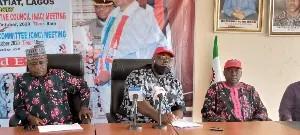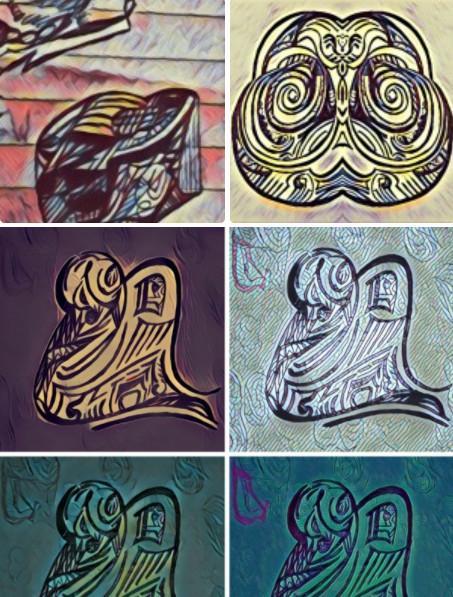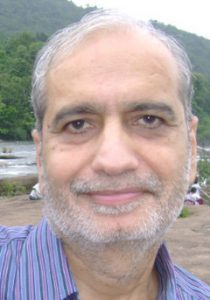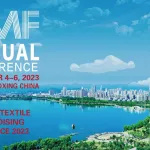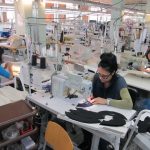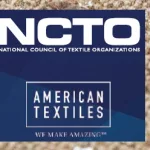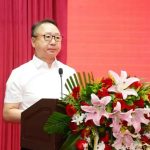“The textile and garment industry remain the key driver of sustainable jobs and development for most national economies of developing nations like ours. Indeed, for Nigeria and Africa to meet the Sustainable Development Goals 2030, especially SDG 9 dealing with industry and innovation, the continent must innovate and industrialize”: John Adaji president of the NUTGTWN
Lagos, Oct. 9, 2020 The National Union of Textile Garment and Tailoring Workers of Nigeria (NUTGTWN) says textile industry remained critical in addressing the nation’s current unemployment challenge.
Its National President, Mr John Adaji, made the disclosure at a news conference on Friday in Lagos.
Adaji said the vision of President Muhammadu Buhari to create 100 million jobs was realisable, if the nation’s textile industry was fully revived.
“The Nigerian Cotton Textile and Garment sector alone has the capacity to create more than five million jobs.
“Also, it will improve internally generated revenue; reduce over 4.0 billion dollars import bill incurred annually on textile and apparel; safeguard and earn foreign exchange for the country,” he said.
John Adaji has said that workers in the textile and garment industries were the most affected by the COVID-19 pandemic in Africa including Nigeria but no job loss has been recorded in the industry during the nationwide lockdown due to the COVID-19 pandemic.
Adaji said: “However, there were some retrenchment that had to do with retirement, but in terms of reduction of our members in terms of the pandemic, there was none.
“This was achieved through call for collaboration, cooperation and understanding between employers and employees, which was supported by the Nigeria Employers’ Consultative Association and Nigeria Labour Congress.
“We had some cases of pay cut, but no job losses.”
“Prior to the pandemic, the industry was on the part of recovery following some interventions by the Federal government through the Central Bank of Nigeria (CBN) within the framework of the Cotton Textile and Garment (CTG) policy,” he said.
He said that in spite of the efforts to revive the textile industry, it was still confronted with many challenges.
According to him, the challenges include: inadequate and costly electricity supply, smuggling, poor patronage, poor infrastructure, high taxation and interest rates and depreciating value of the naira.
“Although, the Nigeria Customs Service has recorded some achievements in combating smuggling, more still need to be done.
“Customs service should come out with creative measures that must include consistent raids of the warehouse of smugglers in Kano Lagos, Kaduna, and other cities of the federation.
“There should be establishment of a Presidential Task Force made up of relevant stakeholders, including the union, with the power to confiscate goods smuggled into the country,” he said.
He said that in the factories that have commenced operation, “we ensure appropriate health and safety measures are put in place in accordance with IndustriALL’s ‘Covid-19 Advice for Workers and Employers.”
The International Labour Organization (ILO) had launched ILO Call for Action initiative to generate funds to protect garment workers’ income during the current COVID 19 crisis. The objective is to generate funds to protect garment workers’ income during the crisis as well as strengthen social protection for the future. Many textile factories have threatened closures, retrenched workers and cut wages in the wake off of continental lock down in response to the Virus.
While commenting on the criteria being considered for support for textile industry in Africa, Comrade Aremu said beyond the level of dependency of the country on garment industry for exports and jobs, the financial ability of the country to support the garment during the health and economic crisis and liquidity needs for business continuity and payment of worker wages, the government bailouts should be part of the overall efforts to re-industrialize the continent.
About Nigeria’s textile industry
Nigeria’s textile industry is one of the biggest in Africa. It’s a feeder for a local fashion market that’s valued at over $4.7 billion, accounting for 15% of the sector’s output on the continent.
While there’s been some growth in the past few years, the industry still has some way to go if it’s to reach the heights of the 1970s, when it employed hundreds of thousands and contributed a sizeable fraction to the Nigerian economy. The top textile companies in the country are concentrated in Kano and Lagos, with a number sited in other towns and cities in the North and South.
Some major textile companies are:
Sunflag Group
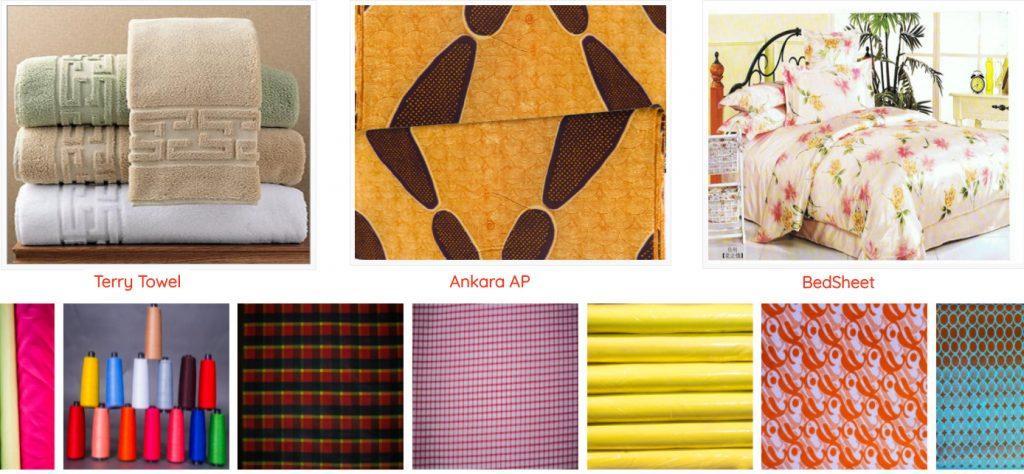 Sunflag is one of the largest home textiles Company in the whole of West Africa with world class manufacturing facilities. It is fully integrated from ginning operations to spinning, weaving and finishing.
Sunflag is one of the largest home textiles Company in the whole of West Africa with world class manufacturing facilities. It is fully integrated from ginning operations to spinning, weaving and finishing.
The textile section of the Sunflag Group began operating in Lagos in 1961 and has since set up in Canada, Tanzania, and Thailand it also has a steel plant in Lagos and in India). Sunflag’s textile facility includes a ginnery, where cotton is cleaned. There are thousands of open rotors and spindles at the factory deployed to spin a variety of fabrics. Officials at the site say that the quality of its spinning equipment allows the facility to rank among the very best textile manufacturing centers in the world. The products fashioned by Sunflag include terry towels, bedsheets, and Ankara fabric.
Femro 3
Femro 3 was set up in Lagos in 1985 and is currently situated in Satellite Town. The factory spins fabric, churns out T-shirts and jackets, and screen prints on clothing. They also make customized garments and other wears for publicity purposes. And if you’d like to buy some polyester filament yarn, they have those on sale as well.
Dangote General Textile
The textile division of the Dangote Group isn’t as well-known as its cement or flour companies, but it’s thriving nonetheless. Located in Lagos, Dangote Textiles makes African print for the Nigerian market, and ships it out to the various buyer locations across the country.
AFPrint Nigeria Plc
AF Print was formally established in 1964 has its facility in the Isolo District of Lagos. It makes African prints and casual unisex wear and produces underwear as well. Besides its textile concerns, it also makes edible oil from the cotton crop that it grows.
African Textile Manufacturers
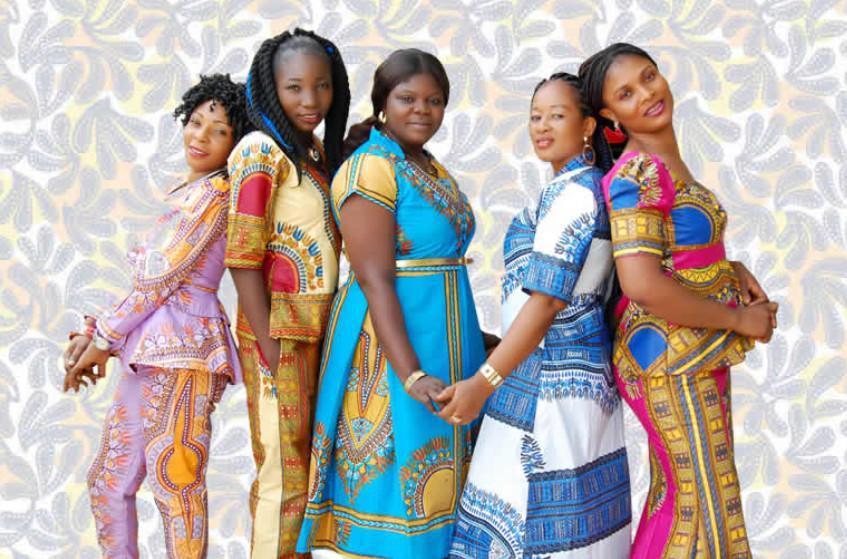 African Textiles Manufacturers Ltd (ATM) is one of Africa’s biggest textile manufacturing company, located in Challawa Industrial Estate, Kano state, Nigeria.
African Textiles Manufacturers Ltd (ATM) is one of Africa’s biggest textile manufacturing company, located in Challawa Industrial Estate, Kano state, Nigeria.
The African Textile Manufacturers (ATM) has its factory at a sprawling facility in Kano’s Challawa industrial estate. The current site is a second production home for this brand; the first ‘factory’ now serves as a sales outlet and warehouse for the company. From its beginnings in 1998, ATM has served Nigeria’s growing market for garments. Today, it’s meeting the need of the wider West African sub-region in this area, with traditional prints and special order designs.
Da-Viva Fashion
The Da-Viva brand is well known among Nigerian fashion circles for blending African traditional designs and Western European styles in the attires that it produces. But this company also makes the fabric from which it creates these garments, and does so with locally grown cotton. The company has its outlets in Lagos, Abuja, Ibadan, Port Harcourt, Benin City, and Ward, as well as in Ghana, Benin Republic, Ivory Coast, and other African countries.
The Garment Factory
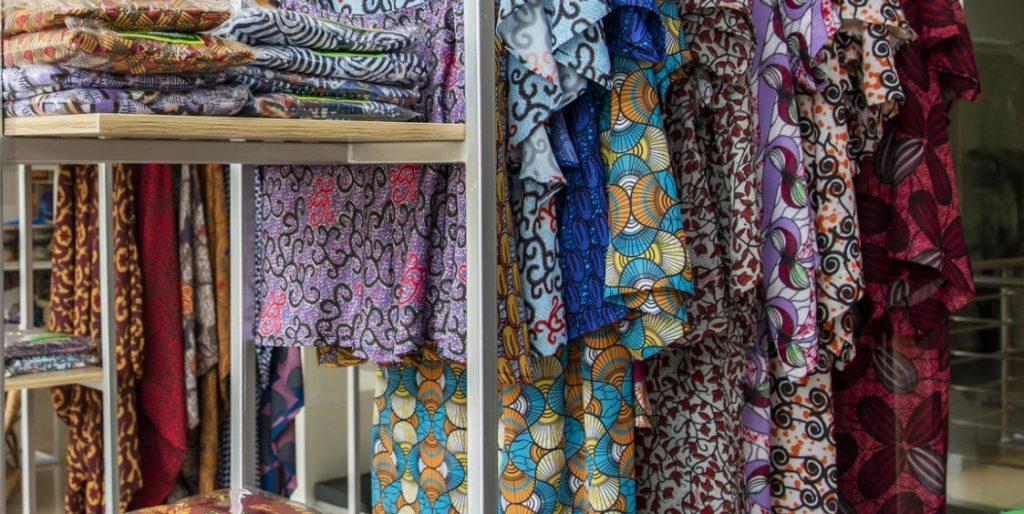
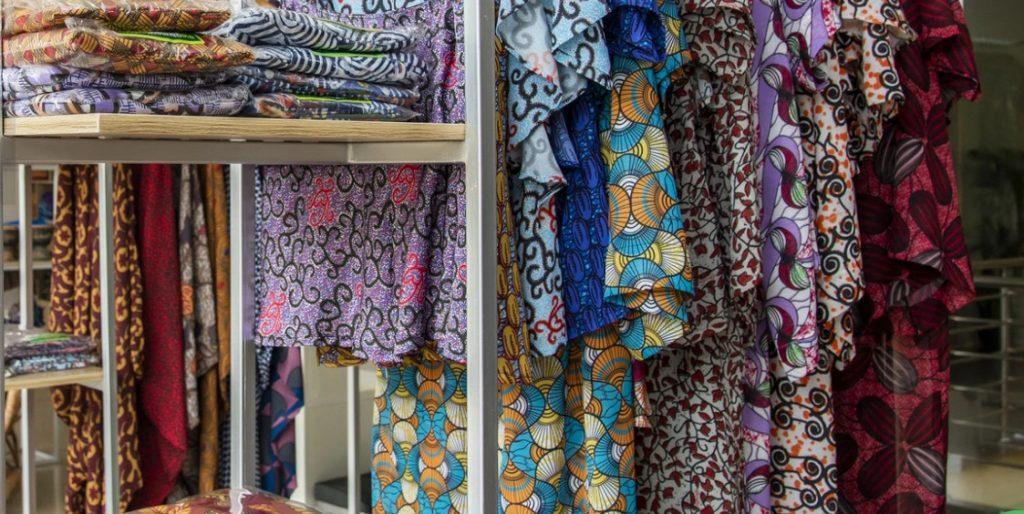 The Garment factory is a Nigerian textile company built on the juxtaposition of the traditional and contemporary. The company offers an array of fabric and ready to wear garments in ankara and adire prints. These prints are produced using an impressive range of base fabrics such as moss crepe, plush georgettes, 100% luxurious silks, soft jerseys, 100% linen, and satin crepe.
The Garment factory is a Nigerian textile company built on the juxtaposition of the traditional and contemporary. The company offers an array of fabric and ready to wear garments in ankara and adire prints. These prints are produced using an impressive range of base fabrics such as moss crepe, plush georgettes, 100% luxurious silks, soft jerseys, 100% linen, and satin crepe.
The Garment Factory has been around for almost a decade, and currently has its facility in the Utako District of Abuja. It has seized on the resurgence of African fabric designs to build a thriving business for itself. It makes silks, georgettes, satin and soft jerseys for the mass market. Clients can also arrange for one-of, customized products to be made on their behalf.
Atlantic Textile Manufacturing Company
This company’s factory is located at the Ilupeju Industrial Estate in Lagos. It makes cotton yarns, grey hafts, and African prints, and supplies its finished product to retailer ventures within and outside of Lagos.
Reddi2Wear
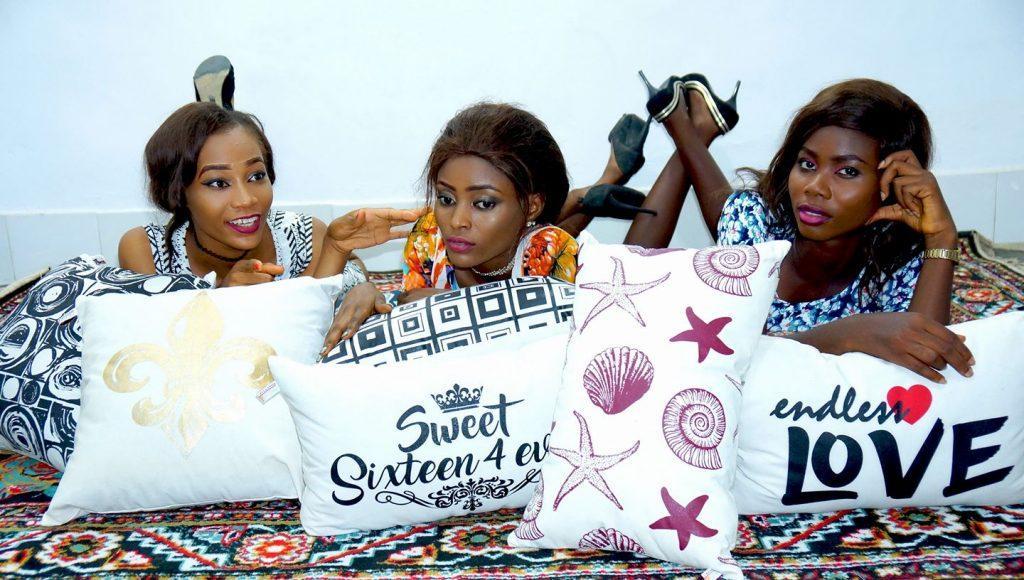 Reddi2wear Nigeria Limited is the Leading manufacturer of Decorative pillows, bedsheets, promo wears, Polo and T Shirts, fast fashion and Baby beds.
Reddi2wear Nigeria Limited is the Leading manufacturer of Decorative pillows, bedsheets, promo wears, Polo and T Shirts, fast fashion and Baby beds.
Reddi2Wear‘s range of textile products includes pillowcases, table mats, T-shirts, and tracksuits. They produce these at their facility in Ikotun, Lagos, and have them sold at various outlets in the city. They also run an adjunct promotional printing service encompassing textiles and other materials.
United Nigeria Textiles
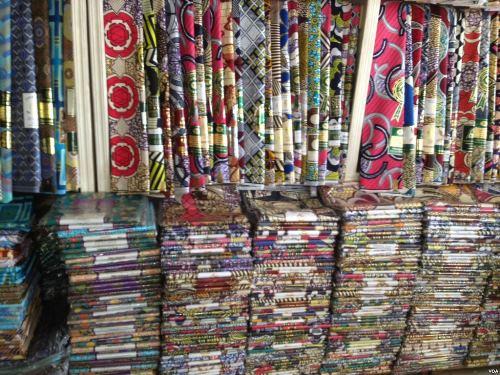 United Nigerian Textiles Plc is a Nigeria-based company active in the textile industry. The Company is primarily engaged in the manufacture of African Prints, Java Prints, Real Wax Prints, and polyester/cotton printed and dyed fabric. Its brands include Classic Wax, Diamond Wax, Rainbow Wax, UNTL and Nichemwax.
United Nigerian Textiles Plc is a Nigeria-based company active in the textile industry. The Company is primarily engaged in the manufacture of African Prints, Java Prints, Real Wax Prints, and polyester/cotton printed and dyed fabric. Its brands include Classic Wax, Diamond Wax, Rainbow Wax, UNTL and Nichemwax.
United Nigeria Textiles takes an integrated approach to textile manufacturing. Its production lines embrace ginning, spinning, and weaving, and churns out African prints, wax print, and dyed fabrics. Their factory is located on Davies Street, Lagos Island.
The National Union of Textile Garment and Tailoring Workers of Nigeria
No 2, Via Montgomery Road, Dapo Bode Thomas Street, Abuja Central, Abuja
Email : nutgtwn@africa2trust.com
Web: www.bureaucrathouse.com
